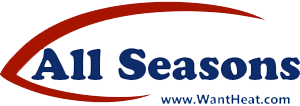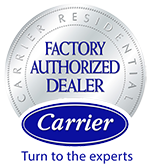Understanding and maintaining the safety features of your furnace is crucial for every homeowner. These elements are designed to prevent accidents and ensure efficient operation. In this article, All Seasons Inc. explores the role of flame sensors, limit switches and safety valves in furnace safety.

Flame Sensors
If the flame sensor doesn’t detect a flame when the gas valve is open, it assumes the gas isn’t igniting and shuts off the gas supply to prevent a dangerous buildup. Failure of the flame sensor can lead to unburnt gas filling your furnace, creating a potentially hazardous situation.
Limit Switches
Limit switches act as a protection mechanism against overheating. When the temperature in the furnace exceeds the safe level, the limit switch shuts off the burner to prevent further temperature increase. This function is critical in preventing potential fire hazards. If a limit switch fails, the furnace could overheat, leading to possible damage and safety risks.
Safety Valves
These are essential for regulating gas flow and maintaining appropriate pressure within the furnace. The safety valves work by releasing excess pressure if the pressure inside the furnace exceeds safe levels. This issue prevents potential gas leaks, explosions and other dangers associated with high pressure. A malfunctioning safety valve can lead to serious safety risks, making regular checks and maintenance vital.
Regular Maintenance
Routine professional maintenance is the key to keeping these safety features functioning optimally. Regular inspections can identify potential issues before they become significant problems, ensuring the safe and efficient operation of your furnace. Maintenance tasks may include cleaning the flame sensor, testing limit switches and inspecting safety valves and other components.
Ensure Furnace Safety With Our Expert Team
Regular professional maintenance is the best way to ensure these features work as they should. With All Seasons Inc. as your partner in furnace safety, you can be confident in the safe operation of your home’s heating system. Call (253) 879-9144 or fill out our contact form to schedule a consultation.














